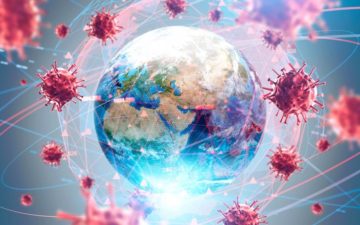Aris Katzourakis in Nature:
 The word ‘endemic’ has become one of the most misused of the pandemic. And many of the errant assumptions made encourage a misplaced complacency. It doesn’t mean that COVID-19 will come to a natural end.
The word ‘endemic’ has become one of the most misused of the pandemic. And many of the errant assumptions made encourage a misplaced complacency. It doesn’t mean that COVID-19 will come to a natural end.
To an epidemiologist, an endemic infection is one in which overall rates are static — not rising, not falling. More precisely, it means that the proportion of people who can get sick balances out the ‘basic reproduction number’ of the virus, the number of individuals that an infected individual would infect, assuming a population in which everyone could get sick. Yes, common colds are endemic. So are Lassa fever, malaria and polio. So was smallpox, until vaccines stamped it out.
In other words, a disease can be endemic and both widespread and deadly. Malaria killed more than 600,000 people in 2020. Ten million fell ill with tuberculosis that same year and 1.5 million died. Endemic certainly does not mean that evolution has somehow tamed a pathogen so that life simply returns to ‘normal’.
More here.
